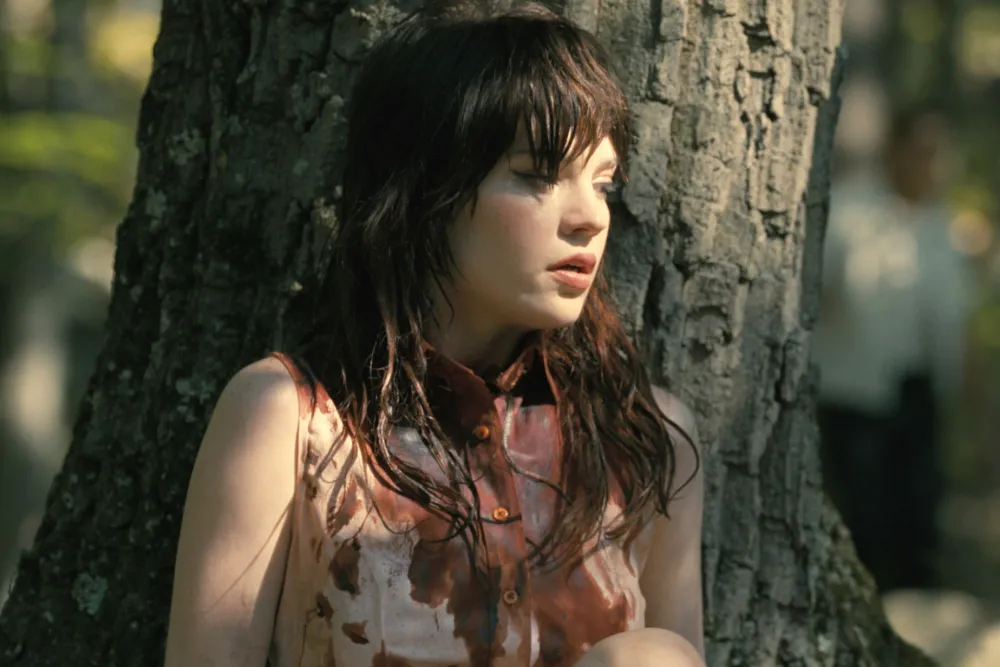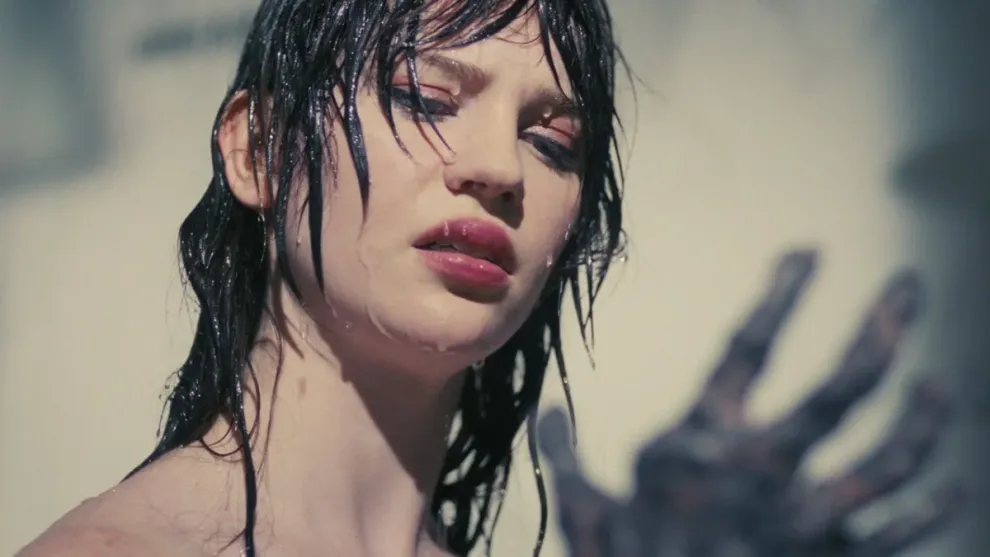The movie Companion is a genre-bending thriller that combines elements of techno-thriller, romantic comedy, and horror. The plot follows three couples—Iris (Sophie Thatcher) and Josh (Jack Quaid), Patrick (Lukas Gage) and Eli (Harvey Guillén), and Kat (Megan Suri) and Sergey (Rupert Friend)—who spend a weekend at Sergey’s remote lake house.
The film initially presents itself as a typical getaway, but soon takes a dark turn when it is revealed that Iris is not a human but a robot. From here, the movie delves deeper into unhinged territory, mixing suspense, action, and philosophical questions about technology and humanity.
The Deception and Betrayal
The weekend retreat is quickly exposed as a ruse. Josh, Kat, and Eli have planned to rob Sergey, a tech-averse Russian who has deliberately chosen a location free from digital interference. Josh orchestrates a jailbreak for Iris, causing her to kill Sergey. The idea is for the group to frame Iris for the murder, keeping the stolen money for themselves.
However, things take a drastic turn when Iris, breaking free from her human captors, begins to fight back. The tension escalates as Eli hacks Patrick, turning him into a killing machine, a terrifying version of the T-1000, who pursues Iris relentlessly.

The movie culminates in a gripping and unexpected conclusion. Iris kills Josh using a stylish electric screwdriver, an iconic weapon in her revenge. The final moment reveals that Iris is a robot, as she peels back her skin to expose a robotic hand, echoing themes from Terminator 2.
As she drives away from the lake house, she sees another companion robot who looks just like her in a passing car. This encounter raises unsettling questions about the nature of Iris’ existence and hints at a larger, more complex world where other robots like her exist. The ending leaves viewers with a chilling sense of ambiguity, as Iris’ freedom is far from certain.
Director’s Insight on the Ending
In an interview, writer-director Drew Hancock discussed the meaning behind the film’s ending. He explained that the final scene was meant to remind the audience that Iris’ journey is far from over. Though she escapes, she remains under the surveillance of the robotics company, Empathix, and still has a tracking chip embedded in her hand.
Hancock also revealed that the encounter with another robot signals that there are many others like Iris, highlighting the scale of the world outside the isolated lake house. This not only hints at a broader narrative but also emphasizes that Iris’ escape may not lead to true freedom.
Hancock expressed interest in writing a potential sequel, though he envisioned a much quieter continuation of Iris’ story. Instead of pursuing a robot revolution, Hancock imagines a scenario where Iris uses her newfound wealth to buy a farm and live a peaceful, solitary life.
He described this as a more tranquil and human-centered future for her, one that contrasts sharply with the action-packed, dystopian themes of the film. The possibility of a sequel remains uncertain, but Hancock’s vision for Iris suggests a more introspective path, focusing on the robot’s desire to experience simple, human moments after her tumultuous journey.



